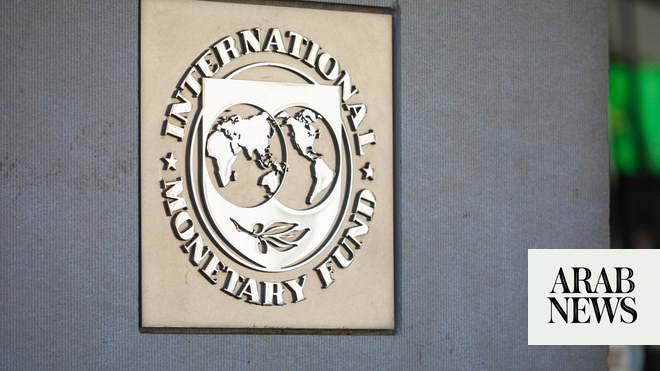
International donors have long demanded that Lebanon institute major economic changes and anti-corruption measures to unlock $11 billion in pledges made in 2018
The request for IMF aid comes as thousands of people lose their jobs and key sectors buckle
BEIRUT: Lebanese Prime Minister Hassan Diab and Finance Minister Ghazi Wazni have signed a request for aid from the International Monetary Fund (IMF).
Diab called it an “historic moment” in the history of Lebanon. “We have taken the first step on the path of saving Lebanon from the deep financial gap and it would be difficult to get out of it without efficient and impactful help,” he said.
Lebanese politicians have traded blame over who is responsible for the country’s financial crisis, the worst since its 15-year civil war ended in 1990.
International donors have long demanded that Lebanon institute major economic changes and anti-corruption measures to unlock $11 billion in pledges made in 2018.
But the country’s economic crisis deepened, and the cash-strapped government announced in March it was defaulting on its sovereign debt for the first time.
The request for IMF aid comes as thousands of people lose their jobs and key sectors buckle under the double-whammy of a worsening economic situation and the coronavirus pandemic.
The Lebanese Ministry of Labor said it had received 234 requests between Oct. 17, 2019, and April 30, 2020, to terminate employment contracts.
The figure means 5,012 registered workers have lost their jobs, but it is believed that this number is not realistic and that hundreds of institutions have terminated employment contracts with their employees without informing the ministry.
Acting president of the General Labor Union, Hassan Fakih, said that more than 75 percent of institutions, especially those in the tourism, industrial, commercial, and transport sectors, had closed because of dire straits.
“More than 60 percent of workers and employees have left their workplaces, while the rest are working in dangerous conditions in hospitals, retail stores, food factories, and transportation,” he told Arab News.
“Some of them are receiving half or quarter a salary. Hundreds of thousands of workers have been laid off. Many of them did not even receive compensation in light of the disrupted judiciary. The government has not taken the appropriate, rapid, and transparent measures, and it suspiciously slowed the distribution of planned aid, leaving people to two options: Dying of hunger or allowing the coronavirus epidemic to claim their lives.”
Coca-Cola said Thursday that it would permanently shut down in Lebanon and lay off all its employees, the second time it has ceased operations in the country. The first time was during the civil war.
The news followed the prestigious Le Bristol Hotel in Beirut saying that it was closing its doors permanently and laying off its employees.
The worsening situation and the return of the political old guard, despite a new government promising reforms, has led people to resume their protests amid the coronavirus shutdown.
Labor Day, an official holiday in Lebanon, gave activists the chance to reoccupy public squares and restore the tents that security forces had removed to prevent gatherings during the pandemic.
The activists took to Riad Al-Solh and Martyrs’ squares in the center of Beirut. They staged a sit-in outside the Banque du Liban on Hamra Street, the Ministry of Labor, and the Ministry of Social Affairs.
They also demonstrated in Aley in Mount Lebanon, in Nabatieh, Tyre, and Rachaya in the south, and in Tripoli in the north. There were chants against corruption and “the officials who looted the country.” People waved the Lebanese flag and raised banners on which they wrote their demands.
Activists believe that the reform plan approved by the government on Thursday aims to burden people with the economic collapse while relieving those in power of accountability.
Army units were brought in to prevent riots. Some banks resorted to shielding their glass windows with iron plates to avoid damage after riots in some areas affected branches.
Retired Brig. Gen. George Nader, who is involved in the movement, said they had no confidence in a government of “disguised” advisers. “The economic plan has not addressed any of the main files,” he added. “The solution is to recover the stolen money — there is no other solution.”
Ján Kubiš, the UN secretary-general’s representative in Lebanon, tweeted that peaceful protests were not only a right, they were a “critical necessity” to continue pressing on the government and, at times, reluctant political forces to implement deep structural reforms for a better, just and dignified future for the Lebanese. “They will always have full support of the UN,” he added.
According to World Bank estimates, 45 percent of Lebanese people live in poverty, while the proportion of extreme poverty expanded from 8 percent to 20 percent.
Minister of Labor Lamia Yammine promised to follow up on labor protection policy by announcing an emergency plan to address cases of mass layoffs.
Yammine said that 30 percent of institutions in Lebanon were closed, while 20 percent were paying salaries reduced by half.












